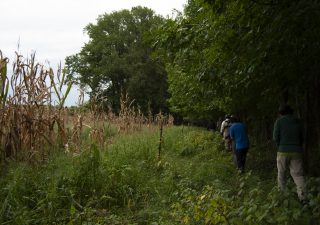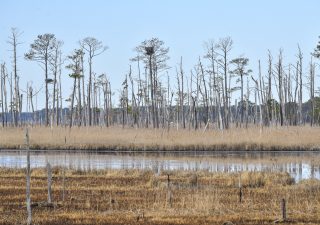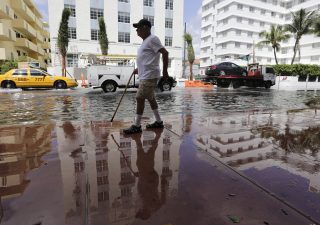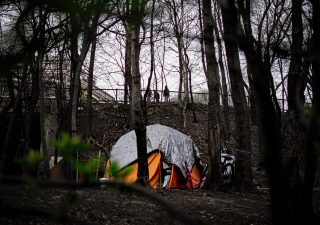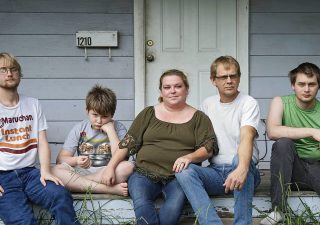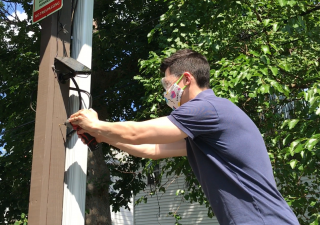Around the country, scientists are sounding the alarm about saltwater intrusion. But the responses on the ground are sometimes inadequate and may not be sustainable because they run up against economic pressures from development, farming or tourism.
The Howard Center for Investigative Journalism
Coastal farmers being driven off their land as salt poisons the soil
With seas rising, farmers along the Atlantic and Gulf coasts increasingly suffer from one of the initial impacts of climate change: saltwater intrusion. Often, the damage is compounded by farming methods ingrained over the years.
As saltwater resculpts the East Coast, researchers say it can’t be stopped but we can adapt
From the mid-Atlantic to the Gulf of Mexico, salt is killing groves of trees from the roots up. Advancing water is pressing landowners and farmers into wrenching decisions and is challenging conservationists to find corridors for marshes to survive.
Driven by rising seas, the threats to drinking water, crops from saltwater are growing in U.S.
The cascading consequences of saltwater intrusion were starkly revealed in interviews with more than 100 researchers, planners and coastal residents, along with soil testing and analyses of well-sample data conducted by the Howard Center for Investigative Journalism.
Salt levels in Florida’s groundwater rising at alarming rates; nuke plant is one cause
South Florida’s flooding streets get the attention, but what is happening beneath the surface presents clear — and in some cases eye-popping — evidence of another threat: saltwater intrusion.
Trump administration proposes step back from ‘housing first’ homeless policy
A new federal plan to end homelessness released this week by the Trump Administration calls for a reversal of Obama-era “housing first” policies.
Milwaukee evictions spurred by COVID-19, longstanding racism and poverty
States across the country temporarily barred landlords from evicting tenants this year as the coronavirus reached the United States, forcing businesses to shutter and unemployment to spike. Wisconsin was one of the first states to lift its eviction moratorium on May 26.
A federal law tried to block evictions and prevent homelessness. Cracks appeared immediately.
A two-month investigation by the Howard Center for Investigative Journalism found that while the federal and state moratoriums dramatically decreased eviction filings in April and May, cracks in the federal law appeared immediately.
Unable to evict, Massachusetts landlords avoid riskier tenants
The Massachusetts eviction moratorium is creating a deeper affordable housing crisis in the state, as landlords once willing to take on financially riskier tenants, like those with poor credit, balk at the prospect.
Tulsa landlords were offered rent if they didn’t evict. Few took the deal.
A program in Tulsa, Oklahoma, designed to stem evictions amid the pandemic fell flat when lawyers advised landlords the deal offering to pay back rent was too risky.

